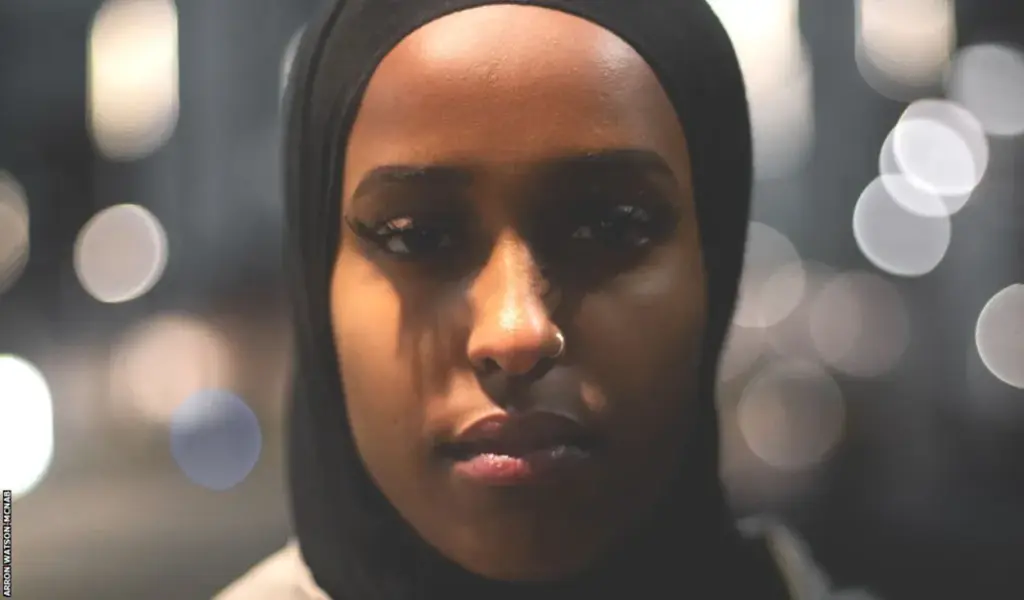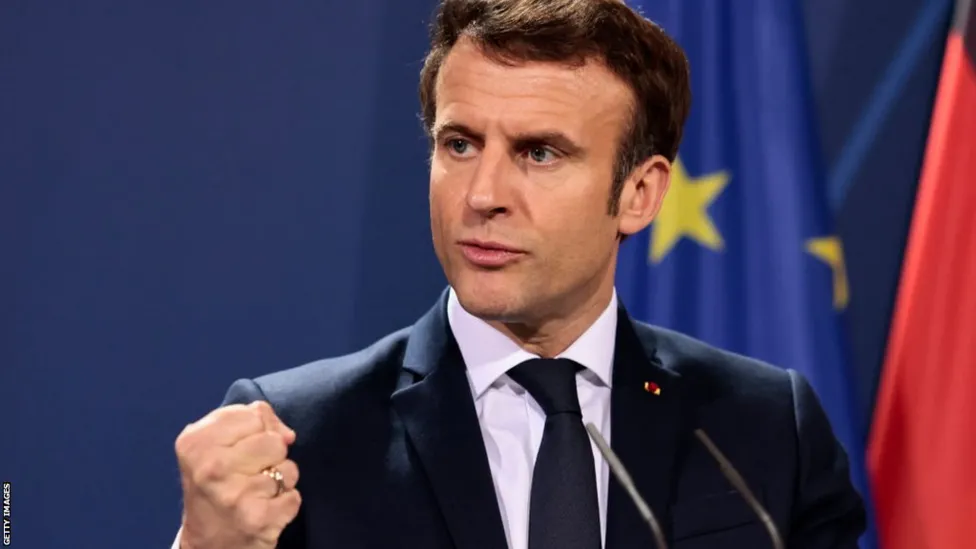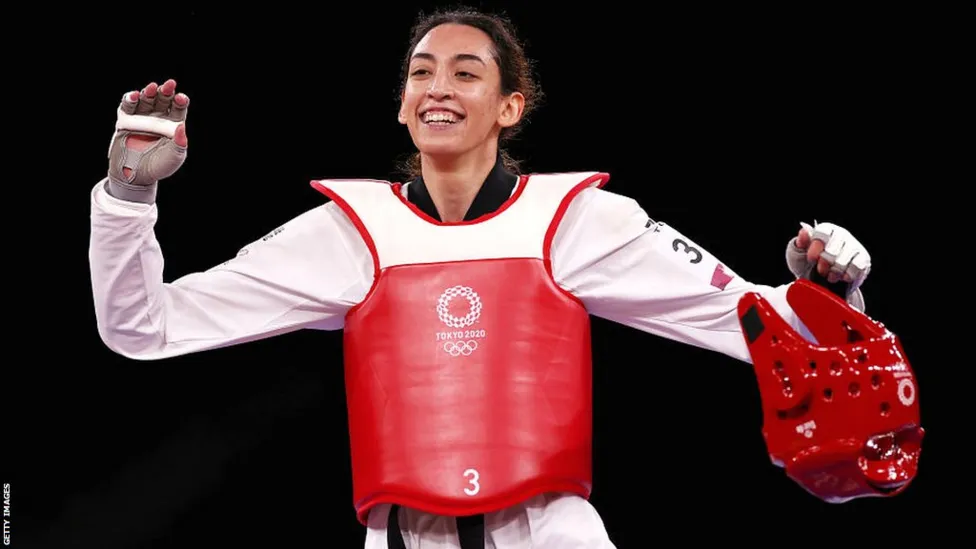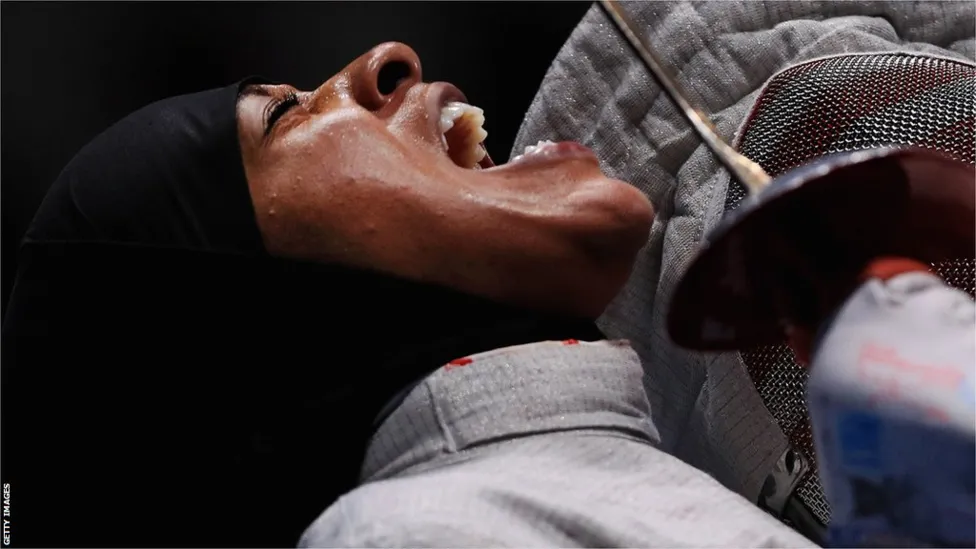News
Paris Olympics 2024: The Controversial Hijab Ban at Sport’s Biggest Party

(CTN News) – The Cite du Cinema, located adjacent to the Seine River, is renowned for filmmaking.
By July, however, its vast studio spaces will have been transformed into the hub of the athletes’ village for the Paris Olympics.
Athletes from various countries and cultures will be seated across from one another in the dining hall, sharing meals and tales. It is a multicultural melting pot where individuals of many creeds and colors gather every four years.
However, the hosts’ dress code differs from that of their guests.
In September, the International Olympic Committee (IOC) stated that competitors in Paris can represent themselves, their beliefs, and their country.
“For the Olympic Village, the IOC rules apply,” an IOC official told BBC.
“There are no restrictions on wearing the hijab or any other religious or cultural attire.”
The French team, however, has been informed something different.
“The ban on the hijab [a type of headscarf that covers the head and neck but leaves the face exposed] is the result of two discriminations: islamophobia and gender discrimination,” says Veronica Noseda, who plays football for Les Degommeuses, a Parisian football club founded to combat discrimination.
Assile Toufaily, who moved to Lyon in 2021 after playing international football for her native Lebanon, agrees.
“It’s not really about the French society, it’s the government,” she remarks.
“There is a hate on Muslim people during these last few years in France and it’s shown in sport.”
This summer, and the advent of the Olympics in Paris, will provide the most visible sporting display of a distinct and disputed French ideology.
Liberte, egalite, fraternity, which first appeared during the French Revolution, is perhaps the most well-known phrase of what France aspires to. It appears on the front of the Constitution, coinage, postage stamps, and public buildings.
Another major concept of the French Republic, laicise, is less well-known and more difficult to interpret.
Laicite, often known as secularism in English, does not require the French people to abandon any religious rituals or symbols; rather, the state and public institutions are explicitly devoid of them.
It is a hotly debated concept in France, especially in light of a slew of terrorist acts over the last decade and a rebirth in far-right parties.
French President Emmanuel Macron has repeatedly defined the term.
“The problem isn’t laicite,” he remarked in an October 2020 speech.
“Laicite in the French Republic refers to the freedom to believe or not believe, as well as the right to practice one’s religion as long as law and order are maintained.
“Laicite refers to the state’s neutrality.” It does not imply that religion will be removed from society and the public arena. Laicite cements the unity of France.”
A 2004 law attempted to clarify the notion by prohibiting “ostentatious” religious symbols from state schools but did not provide specific examples.
While Sikh turbans, Jewish kippahs, and huge Christian crucifixes have all been regarded as violating laicite, the majority of the argument has been on head coverings among the largest Muslim community in Western Europe.
In September, French sports minister Amelie Oudea-Castera, a former professional tennis player who lost to Martina Hingis in the 1994 Wimbledon juniors semi-final, affirmed that the French Olympic team, as an entity representing and supported by the French people, is subject to laicise.
“It means absolute neutrality in public services,” she said. “The France team will not wear the headscarf.”
Athletes from other countries will be free to wear religious symbols in the Paris 2024 athletes’ village as they desire. However, some French teams cannot comply with their country’s standards.
Some international organizations have criticized this position.
“No-one should impose on a woman what she needs to wear or not wear,” stated a United Nations Human Rights Office representative.
“Prohibitions on the wearing of religious headscarves in public spaces violate Muslim women’s rights,” Amnesty International noted.
In France, however, the restriction is widely supported.
“It is a complicated and very, very sensitive issue,” says Sebastien Maillard, an associate fellow at think tank Chatham House who has covered French politics and society throughout his career.
“When I went from Paris to London, that was one of the biggest adjustments. Religion is openly expressed in the United Kingdom, whereas it is frequently viewed as controversial in Paris.”
Maillard brings up another lesser controversy: excluding religious symbols from Paris 2024.
The Game’s official poster was presented in March, a stylized depiction of Paris’ landmarks forming a stadium.
The artist omitted the golden crucifix on top of the Hotel des Invalides, raising questions about how the Games, which will cost French taxpayers billions of dollars, adhere to laicite values.
“The debate today more often focuses around a Muslim community, one that wants to be fully part of French society but also follow religion in its way,” Maillard said. “We’ve had this ongoing debate about how that fits.
“The French republic was partially built on a rejection of Catholicism, and it feels threatened anytime religion intrudes on it. There is widespread concern, particularly among older generations, of religion wielding power over society and the state.”
The argument occurs in sectors with the most pronounced demographic differences, such as education and sports.
During last year’s Ramadan, a month-long fast observed by Muslims between sunrise and sunset, the French Football Federation (FFF) proclaimed referees not to pause matches to allow players to break their fast, claiming that such interruptions “do not respect the provisions of the statutes of the FFF”.
This year, with Ramadan falling during an international break, the FFF declared that it would not change the schedule of meals and practices to accommodate Muslim players, thereby prohibiting them from fasting while on camp with France’s age-grade and senior teams.
Lyon midfielder Mahamadou Diawara reportedly departed France Under-19s due to constraints. (external)
Diaba Konate, a brilliant basketball player who has represented France at the under-23 level, has departed for the United States, citing a ban on wearing the hijab as a “heartbroken” external
Global Comparisons and Changing Norms:
Even in low-level local matches, female Muslim players are typically prohibited from wearing a headscarf because public entities organize and manage the leagues. Some referees have also declared protective scrum caps, a workaround option used by some players, to be incompatible with the rules.
Because laicity is applied at the grassroots level of athletics, hijab-wearing athletes are sometimes forced to compromise or drop out before reaching the main stage.
However, this summer will highlight their dilemma: deciding between wearing a national team kit in Paris 2024 and expressing their religion.
Expectations have shifted in other sports, too.
During the Women’s Football World Cup last summer, Morocco defender Nouhaila Benzina made history.
Following Fifa’s 2014 rule change, which allowed wearing head coverings for religious reasons, she became the first World Cup player to wear a hijab when she faced South Korea.
Fencer Ibtihaj Muhammad made history in Rio 2016, becoming the first American to compete in the Olympics wearing a hijab. She was later one of the players who helped launch a hijab designed exclusively for sports by a global American sports brand.
Iran’s taekwondo player Kimia Alizadeh, who won a medal in those Games while wearing a head covering, has subsequently relocated to Germany, where she has criticized the Iranian government’s policy of “compulsory hijab”.
She competed at the Tokyo Games in 2021 under the banner of the refugee team and without a religious head covering.
Iqra Ismail can only speak for herself from over the Channel in the United Kingdom, where laicite is an unfamiliar concept.
She is a director at Hilltop FC, the Female Refugee Football Project Coordinator at QPR Community Trust, and a Muslim who has enjoyed sports since childhood.
“Wearing the hijab is an expression of my identity. “When it comes to playing, I will not leave it outside the lines of the pitch,” she explains.
“Football is a human right – everyone should definitely have the right to participate in it.”
Yasmin Abukar founded Sisterhood FC, a London women’s Muslim football team.
“I was asking Muslim girls what made them stop playing football, and the answers that they gave me were so sad to hear,” Abukar says of the club’s inspiration.
“Half of them stopped because they did not feel like they belonged. The other half thought they didn’t have access to football in a way that suited their religious needs.
“I have no idea how I would feel as a young Muslim being informed by the government that I cannot practice my religion freely.
“I’m very thankful that my parents didn’t migrate to France.”






























